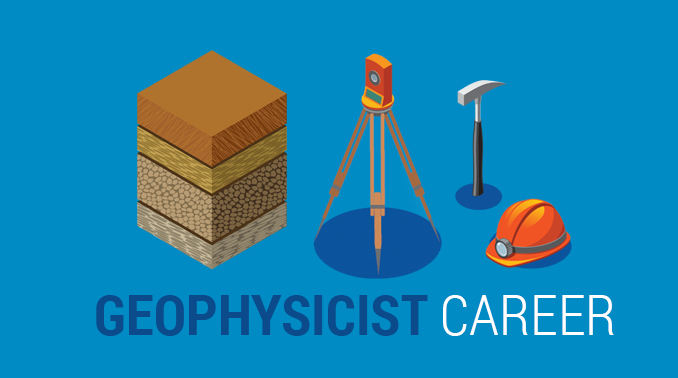All Categories
Featured
Table of Contents
What Does A Geophysicist Do: Duties And Responsibilities in Hovea Western Australia 2023
This work is progressively contracted out, so consultancies supply another source of work. Consultancy firms differ in size, from very small companies to large multinationals. Some consultancies are quite specialised in utilizing particular geophysical strategies or operating in particular areas, while others use a more varied series of services to their customers.
The extraction of gas from land fill websites is another location of employment and this might grow in the future. Exploration business might carry out work for building and construction firms, water companies, mining business and ecological companies, so geophysicists might be used in any of these settings. Other companies include: geological surveysgovernment bodies and agenciesuniversities and research institutes.


Vacancies might be noted in the oil and gas sector press. Recruitment is affected by oil rate changes and the level of competition for positions differs depending upon this. Professions Days, which cover the full series of geoscience careers and are generally participated in by a variety of essential market employers, are run by The Geological Society.
Geoscientists : Occupational Outlook Handbook in Ridgewood Western Australia 2022
A few of the big oil and gas business offer a full two-year structured training programme across the breadth of geophysics, including the chance to experience work in various groups before specialising in one area. Your training may consist of work on: existing wellsmagnetic and gravitational prospective field data analysisresearchrock analysis. However, it's more usual for your preliminary training to be supplied on the task.

There might be a probationary duration throughout which you work together with a skilled colleague. Competency-based appraisals happen regularly in a lot of companies. In smaller companies, and for academic posts, there is unlikely to be any formal training - you'll be anticipated to start work straightaway and get abilities as you go along.
If you work for a smaller sized company, you might find that you need to take obligation for setting up and funding your own development and training. If you have a geology degree, subscription of The Geological Society can be helpful for networking and for maintaining to date with the industry.
Geophysical Surveys - Method Types And Work Tehniques I ... in North Beach Australia 2022
You may also find it helpful to sign up with the PESGB (The Petroleum Expedition Society of Great Britain, which has a geophysics unique interest group. After a probationary duration, and when you have actually gained some experience, you could progress to senior geophysicist, then group leader and after that into a senior role in management.
The ease of motion in between roles depends upon the company structure. Study at Masters or Ph, D level in a subject related to geophysics or geosciences might assist with your career development and development. The employment market within the oil and gas industry is extremely depending on price and this may affect your opportunities for profession progression.
Nevertheless, not all jobs are dependent on the oil and gas markets. For knowledgeable geophysicists, freelance consultancy uses an excellent path for profession advancement. You can likewise specialise in a specific location of geophysics. As a geophysicist, you're likely to have a number of tasks throughout your working life. Global movement is vital for handling peaks and troughs in various nations at various times.
Consumer Guide To Geological And Geophysical Services ... in Marangaroo WA 2023
From geophysics, it's possible to concentrate on seismology (finishing further training to end up being a seismic interpreter) or to move into related locations such as engineering geology or threat forecast.
Choosing what to study in college is a difficult option. Even if you understand that your field of interest lies in science, what program of research study is best for you?
But the initial step to achieving your goal of ending up being a geophysicist is earning a degree. Even for entry-level positions in the field of geoscience, you'll require a bachelor's degree (a geophysicist college degree) from an accredited college or university. Some research positions require candidates to hold master's degrees or even Ph.
Geophysics & Geophysical Surveys in Bentley WA 2020
Postgraduate degree are especially essential if you plan to teach at a four-year institution. Geophysicists apply physics concepts and techniques to study the gravitational, magnetic, and electrical fields of the earth. This advances researchers' knowledge of both the world's interior core and its surface. Geophysicists need to be able to: examine rocks, photos, and other pieces of data carry out research both in the field and in laboratories develop maps and charts of their findings write reports To achieve all this, trainees need a specialized education for geophysicist professions.
As stated above, you'll need a bachelor's degree in geoscience or a related discipline, such as a physical science or a life sciences, to land an entry-level job. Students can likewise prepare by majoring in subjects like: Biology Chemistry Computer system science Engineering Mathematics Physics The above geophysicist majors offer a more generalized method to a single clinical discipline, but most programs require trainees to take one or more geology course.
Table of Contents
Latest Posts
Geophysics, Engineering Geophysics And Applied ... in Carmel Western Australia 2023
Airborne Geophysical Surveys Of The Lower Mississippi ... in Balcatta Oz 2022
Working As A Geophysicist And Oceanographer In Canada in Cannington Australia 2023
More
Latest Posts
Geophysics, Engineering Geophysics And Applied ... in Carmel Western Australia 2023
Airborne Geophysical Surveys Of The Lower Mississippi ... in Balcatta Oz 2022
Working As A Geophysicist And Oceanographer In Canada in Cannington Australia 2023